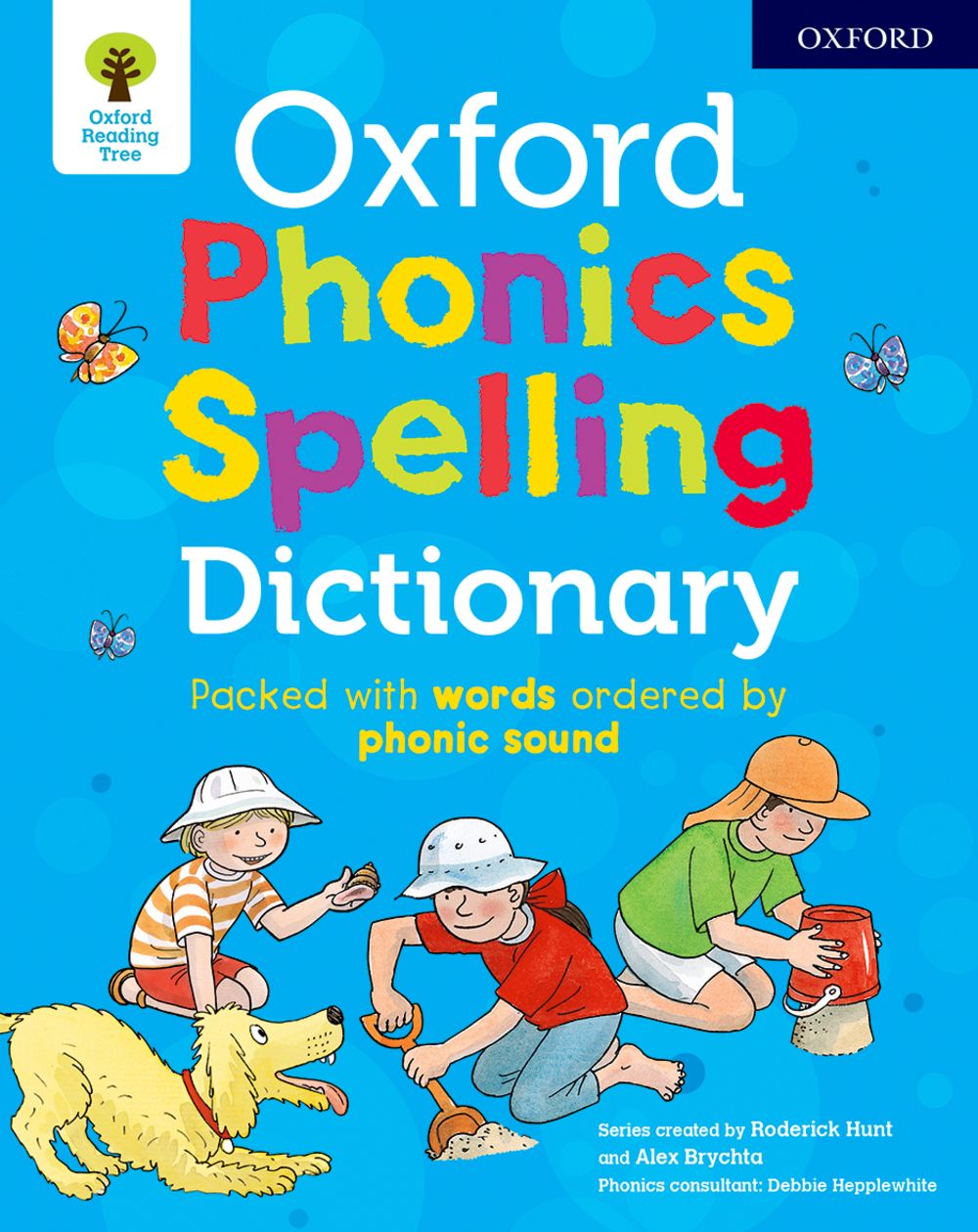Oxford Phonics Spelling Dictionary
R277.95 (incl. VAT)
This new edition of the Oxford Phonics Spelling Dictionary is an easy home and school reference tool. With words ordered by their initial phonic sound and colourful illustrations by Alex Brychta and the familiar Oxford Reading Tree characters, it helps children using synthetic phonics and prepare for the screening check. Supported by the Floppy’s Phonics Sounds and Letters Programme, it follows the Alphabetic Code Chart of sounds and alternative spellings that children learn at school. There are subsections to show how the same sounds appear in the middle or at the end of a word and a separate section of the long vowel sounds and their alternative spellings.
With this dictionary, it easy to explain how ‘sun’ and ‘Cinderella’ both start with the ‘s’ sound and how ‘dance’ has the same ‘s’ sound at the end, while ‘egg’ and ‘eat’ start with the same letter but different sounds.
There is additional phonics support material and audio on the Oxford Owl website, www.oxfordowl.co.uk. For more free downloadable word games, puzzles, and activities go online to www.oxfordschooldictionaries.com
With this dictionary, it easy to explain how 'sun' and 'Cinderella' both start with the 's' sound and how 'dance' has the same 's' sound at the end, while 'egg' and 'eat' start with the same letter but different sounds.
There is additional phonics support material and audio on the Oxford Owl website, www.oxfordowl.co.uk. For more free downloadable word games, puzzles, and activities go online to www.oxfordschooldictionaries.com
Features
- This unique phonics dictionary, with words ordered by their initial phonic sound, supports spelling and reading
- Illustrated with the favourite Oxford Reading Tree characters Biff, Chip, and Kipper and, of course, Floppy!
- Ideal for preparing for the phonics screening check
- Makes synthetic phonics easy with a full list of sounds and alternative spellings from the Alphabetic Code Chart
- Fully supported by the Floppy's Phonics Sounds and Letters Programme with additional resources on the Oxford Owl website
